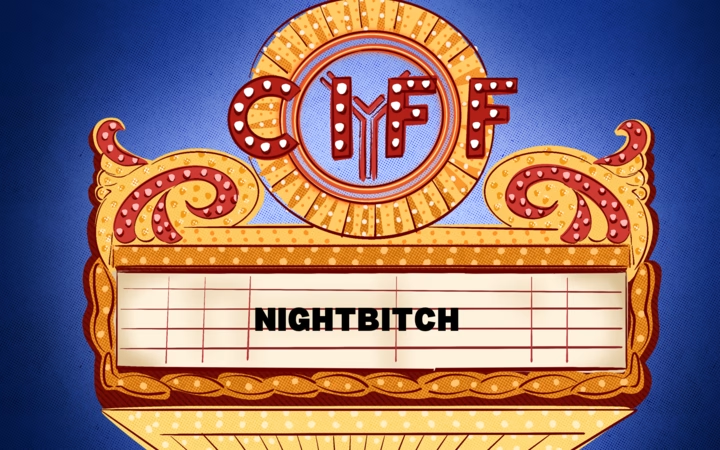When did we lose the art of subtlety? Somewhere buried in the hour-and-a-half run time of “Nightbitch” is a truly fascinating story about motherhood, but the film’s reality is a sad case of no show and all tell that feels exhausting for both the characters and audience alike.
“Nightbitch” is a horror comedy that follows an artist and gallery curator, played by Amy Adams, who must adapt to her new life as a stay-at-home mom. While she deals with the new routine and expectations of motherhood during the day, at night she discovers herself slowly transforming into a dog. Her nighttime identity begins to clash with the real world as she struggles to regain control of her animalistic and maternal instincts.
For such an interesting sounding plot, “Nightbitch” is simply disappointing. There are incredibly interesting elements of magical realism shown in themes of metamorphosis and femininity, but the film never seems to commit to its own central idea. Instead of a crazy story about a woman turning into a dog, it’s just a bunch of monologues and painful on-the-nose dialogue that leaves nothing to the imagination.
It’s evidently clear that the film is based on a book from the monologues and voiceovers you would expect to read from the mother’s point of view. Yet, this is an adaptation that doesn’t translate well between mediums.
The voice overs are interesting for the first act of the film but quickly become exhausting when you realize that’s the only way any plot will ever be conveyed. It is effective in its ability to demonstrate the isolation of Adams’ character but after a while it feels like she’s droning on, even when she’s delivering each monologue with the masterful acting chops you’d expect from her. I suppose it’s hard to have gut wrenching dialogue when your scene partner is a rowdy toddler, but the way it’s crafted just doesn’t feel like cinema.
The only times “Nightbitch” seems to excel in its plot is when the filmmaking allows itself to bask in the weirdness. Instead of monologue after monologue, add in more dream sequences around folktales and body horror with Adams’ physical changes into a dog. Show more scenes of Adams’ scarfing down meatloaf like a dog, utilize those editing choices to portray the monotony of being a stay at home parent. Focus on the incredible artwork Adams creates when she finally has a moment to herself!
There is so much potential in the story if it was brave enough to stray from its book-origins and embrace the visual medium. Stop teasing me with small tidbits of interesting visuals and storytelling and commit to them.
The final nail in the coffin comes relatively early during an interaction between the mother and her husband. After a restless night of sleep due to her son’s toddler antics where she yells at her husband to help out, she confronts him the next morning and calls herself a night bitch. There are certainly times explicitly saying the movie title in the dialogue works well. This was not one of them. The build up to that one phrase was so obvious that when Adams finally said it, I audibly groaned.
“Nightbitch” could be good if it wasn’t so scared of its own oddity. Instead of leaning into its magical realism and body horror, it instead chooses to stay in its comfort zone of book-like monologues and too-obvious plot choices. There is an inherently important story regarding motherhood somewhere in the script, but it’ll take a more patient audience and better adaptation to dig it out.
*This film screened at the 60th Chicago International Film Festival
Related Stories:
- ‘A Different Man’ review: Sebastian Stan and Adam Pearson play two sides of the same coin
- ‘The Substance’ review: A wild, nauseating body horror facemelter
- “Civil War” review: A student journalist’s perspective
Support Student Journalism!
The DePaulia is DePaul University’s award-winning, editorially independent student newspaper. Since 1923, student journalists have produced high-quality, on-the-ground reporting that informs our campus and city.
We rely on reader support to keep doing what we do. Donations are tax deductible through DePaul's giving page.


